What is microfluidics?
Microfluidics is the study of fluid behavior on a microscale and focuses on the manipulation of very small volumes of fluid. Microfluidic chips used in this field contain channels with dimensions of tens to hundreds of micrometers (smaller than the size of a human hair).
Different types of microfluidic technology exist. For example, optofluidics combines the advantages of fluidics and optics on the microscale. In acoustofluidics, sound waves are used to manipulate fluids. In digital microfluidics, fluids are manipulated on an array of electrodes using an electric field.
These different technologies can be used in integrated devices. For example, in a lab-on-a-chip device, several standard laboratory tests can be carried out on a single chip. In an organ-on-a-chip microfluidic device, cells are cultured in 3D aiming to better mimic the key functions of living organs.
Microfluidics can also be divided in two main branches. In continuous-flow microfluidics, fluids are injected in channels continuously without any break of continuity. In droplet-based microfluidics, two-immiscible fluids such as water and oil are injected in a microfluidic chip to generate droplets. Emulseo has a strong expertise in droplet-based microfluidics and can supply all the products required for this technology.
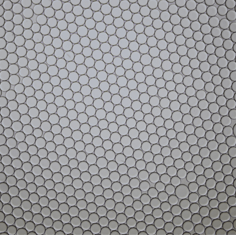
Introduction to droplet-based microfluidics
Droplet-based microfluidics is a specialized area within microfluidics that focuses on the creation, control, and manipulation of droplets. In this technique, droplets are typically formed by injecting one fluid into another immiscible fluid (such as water into oil). Each droplet can function as an individual micro-reactor, capable of carrying out complex chemical reactions or biological assays on a microscopic scale.
These droplets can contain a variety of entities including cells, particles, or chemical reagents, making them ideal for high-throughput screening, single-cell analysis, and precise chemical synthesis. The ability to manipulate and analyze thousands to millions of droplets simultaneously enables rapid experimentation and data collection, significantly enhancing research capabilities.
By miniaturizing and compartmentalizing processes into small droplets, droplet-based microfluidics revolutionizes the way scientists conduct experiments, enabling faster, more efficient, and highly scalable approaches to scientific research and development.
Overview of microfluidics applications and sectors
Our products are widely used in a variety of applications, including Digital Droplet PCR, Single-cell analysis, Screening, Synthetic biology and Chemical and biological reaction control, illustrating our expertise in droplet-based microfluidics.
Traditionally used mainly in the healthcare sector, the microfluidic technology is now being extended to many other sectors, including Biotechnology and medical, Cosmetic, Agro-industry, Environment & Energy, Materials and many more, offering innovative possibilities for all types of requirements.
Digital Droplet PCR
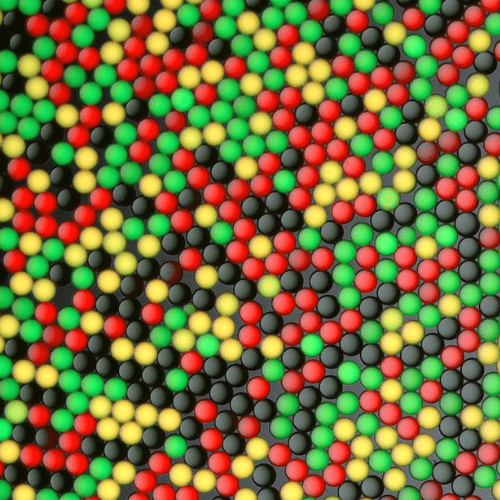
Droplet digital PCR (ddPCR) is an advanced technique for precise and absolute quantification of nucleic acids. It works by partitioning a sample into thousands of nanoliter-sized droplets, each acting as an individual PCR reaction chamber. This allows for the detection and quantification of DNA or RNA molecules with high sensitivity and specificity.
ddPCR is particularly useful for detecting rare genetic mutations, copy number variations, and low-abundance pathogens. It offers advantages over traditional qPCR by providing absolute quantification without the need for standard curves.
Overall, ddPCR is a powerful tool in molecular biology and clinical diagnostics, offering enhanced accuracy and reproducibility.
Our surfactant play a crucial role in maintaining droplet stability throughout the PCR workflow, while ensuring the integrity of their contents.
→ Click here to read our article on liquid biopsy for World Cancer Day (04/02/2023)
Screening

Screening is a crucial process in various scientific fields, involving the systematic examination of large numbers of samples or entities to identify specific characteristics or attributes.
In biomedical research, screening plays a vital role in drug discovery, disease diagnosis, and genetic analysis. By utilizing microscale systems, screening processes can be streamlined and optimized, allowing for efficient analysis and identification of target molecules or compounds.
Microfluidic technology has emerged as a powerful tool for screening applications, offering precise control over experimental conditions and enabling high-throughput analysis. Through the compartmentalization of samples within droplets, microfluidic systems provide an ideal environment for screening assays, facilitating rapid and accurate results.
The application of screening methodologies enhances our understanding of biological processes, accelerates the discovery of new drugs, and contributes to advancements in personalized medicine.
The ability to retain molecules in droplets makes our formulations suitable for all screening applications.
Single-cell analysis
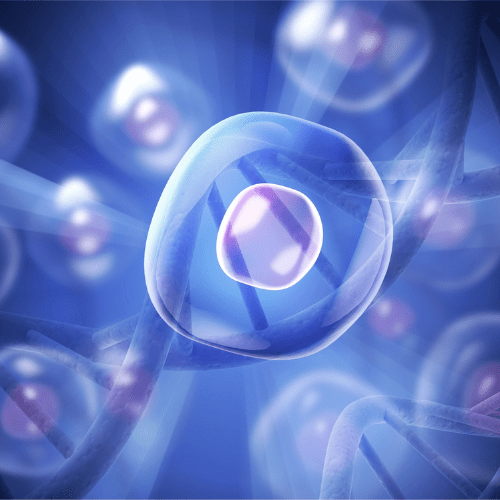
Droplet-based microfluidics has revolutionized single-cell analysis, allowing for unprecedented insights into genomic, transcriptomic, proteomic, and metabolic levels. This technology isolates cells into monodispersed droplets, providing a controlled environment for analysis.
With droplet-based microfluidics, cells are compartmentalized into picoliter or nanoliter droplets, enabling high-throughput and low-cost analysis with exceptional precision. Our FluoSurf™ surfactant ensures droplet stability throughout the process, guaranteeing reproducibility.
Biocompatible and produced in large quantities, FluoSurf™ is ideal for single-cell analysis, offering unparalleled advantages.
Biocompatible and produced in large quantities, FluoSurf™ is ideal for single-cell analysis, offering unparalleled advantages such as droplet stability throughout the process and reproducibility of the experiments.
Synthetic biology
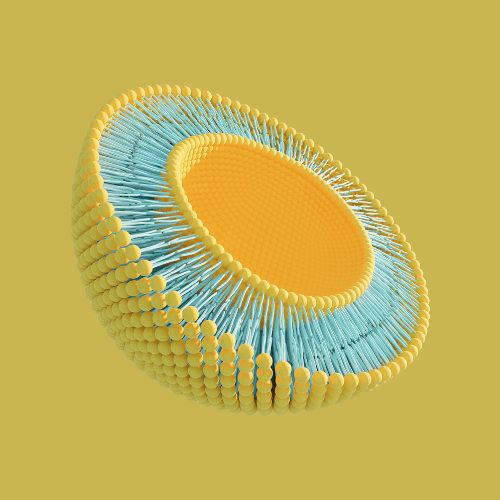
Microfluidics is significantly advancing the field of synthetic biology by offering unparalleled precision and control over biological processes at the microscale.
By integrating various biological components into microfluidic systems, scientists can create complex biological networks and artificial cells that mimic natural functions more closely.
Additionally, microfluidics supports the development of biosensors for real-time monitoring and analysis of biological reactions, providing critical insights into cellular behavior and gene expression.
Microdroplets can be used to assemble networks of enzymatic reactions, recreating complex metabolic pathways in a controlled environment.
Our fluorinated surfactants ensure the stability of the droplets, thereby facilitating the creation and study of miniaturized biological systems.
Chemical and biological reaction control
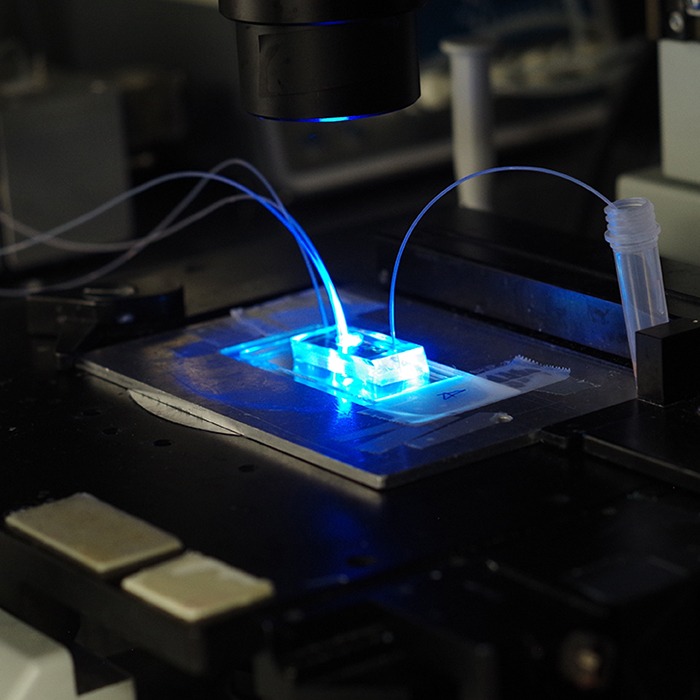
The application of microscale systems has revolutionized the control and understanding of physical processes, particularly in chemical and biological sciences.
Microfluidic technology offers precise control over reactions, facilitating fundamental studies and predictions about molecular synthesis and high-throughput production.
By providing an ideal confined environment within droplets, microfluidic systems enable complex experiments and mimic essential features of chemical environments in living cells.
Understanding enzymatic reactions enhances our comprehension of biological systems and paves the way for discovering new chemical reactions, unlocking a realm of possibilities for scientific advancement.
Our surfactants allow a good stabilization and isolation of droplets, enabling precise control of chemical and biological reactions while preventing cross-contamination.
Sectors
Biotechnology and medical

This technology plays a pivotal role in biotechnology and medical applications by offering precise control over reactions and analysis. From drug discovery to genetic analysis, microscale systems streamline processes and enhance efficiency. Our microfluidic solutions enable high-throughput screening assays, accelerating the identification of potential drugs and biomarkers.
Additionally, our technology facilitates personalized medicine by enabling rapid and accurate diagnostic tests.
Cosmetic
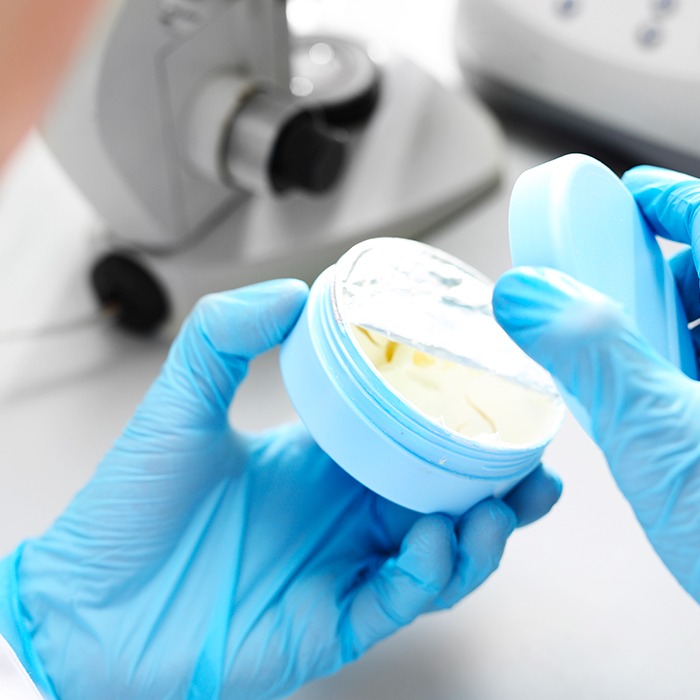
In the cosmetic industry, this technology revolutionizes product development and quality control processes. Microscale systems provide a platform for precise formulation studies, ensuring optimal product stability and performance.
Through high-throughput screening, our solutions enable the rapid evaluation of cosmetic ingredients and formulations, leading to the development of innovative and effective products. Additionally, microfluidic technology enhances the safety and efficacy assessment of cosmetic products, contributing to consumer satisfaction and regulatory compliance.
Agro-industry
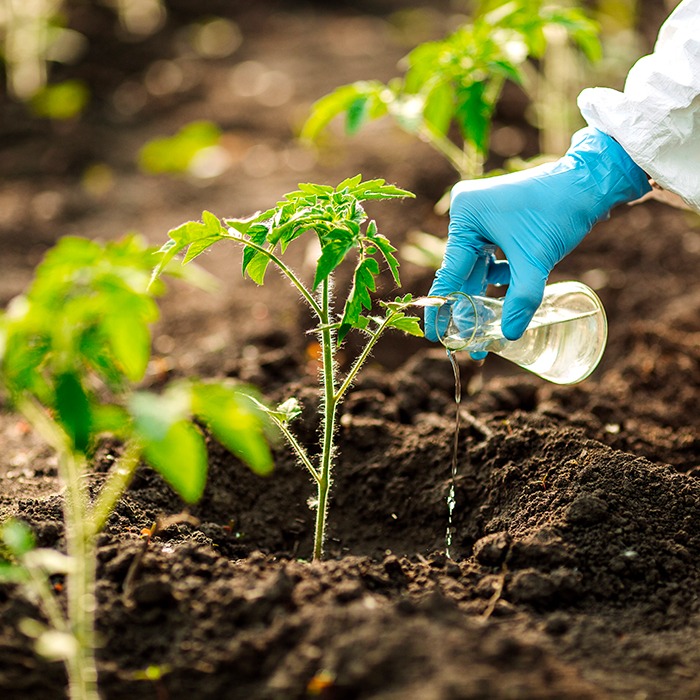
This technology revolutionizes processes within the agro-industry, offering unparalleled precision and efficiency in various applications.
From crop protection to food production, our microscale systems play a pivotal role in enhancing agricultural practices and ensuring food security. By enabling precise control over reactions and analyses, our solutions facilitate the development and optimization of agricultural inputs such as fertilizers, pesticides, and plant growth regulators.
Microfluidic technology also enhances the screening of crop varieties for traits such as yield, disease resistance, and nutritional content, leading to the development of resilient and high-quality crops. Additionally, our solutions enable rapid and accurate analysis of soil and water samples, supporting sustainable farming practices and environmental stewardship. Overall, our technology empowers the agro-industry to meet the growing demand for safe, nutritious, and environmentally sustainable food production.
Environment and energy
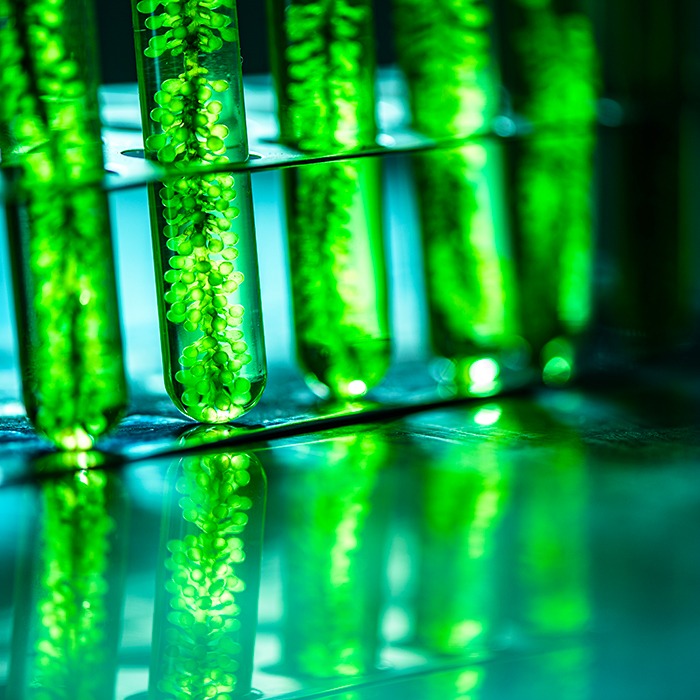
In the fields of environmental monitoring and energy production, this technology offers valuable tools for analysis and optimization.
Microscale systems enable the rapid and accurate detection of environmental pollutants, facilitating timely interventions to protect ecosystems and human health. Our solutions also play a crucial role in energy production processes, enabling precise control over reactions and analyses in fuel cell development, biofuel production, and renewable energy research.
By providing high-throughput screening capabilities, our technology accelerates the discovery of sustainable solutions for environmental and energy challenges.
Materials
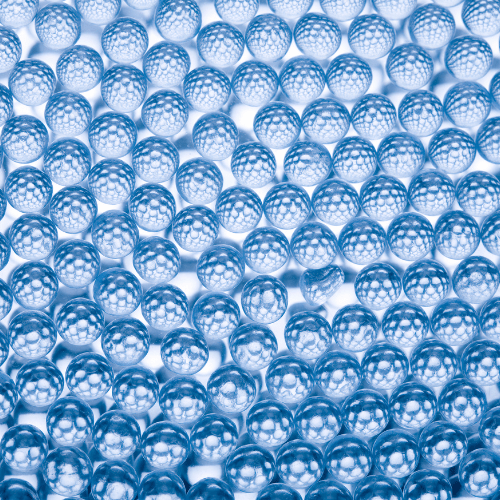
Microfluidics is revolutionizing materials science by enabling precise control over the design, synthesis, and characterization of new materials.
Microfluidics allows for the creation of nanoparticles and composites with well-defined structures and enhanced properties. Microfluidic techniques are crucial for testing the mechanical, thermal, and electrical properties of small material samples. The technology facilitates the assembly of complex composite materials and the development of smart materials that respond to external stimuli.
Microfluidics offers vast and promising applications, pushing the boundaries of innovation in materials science.